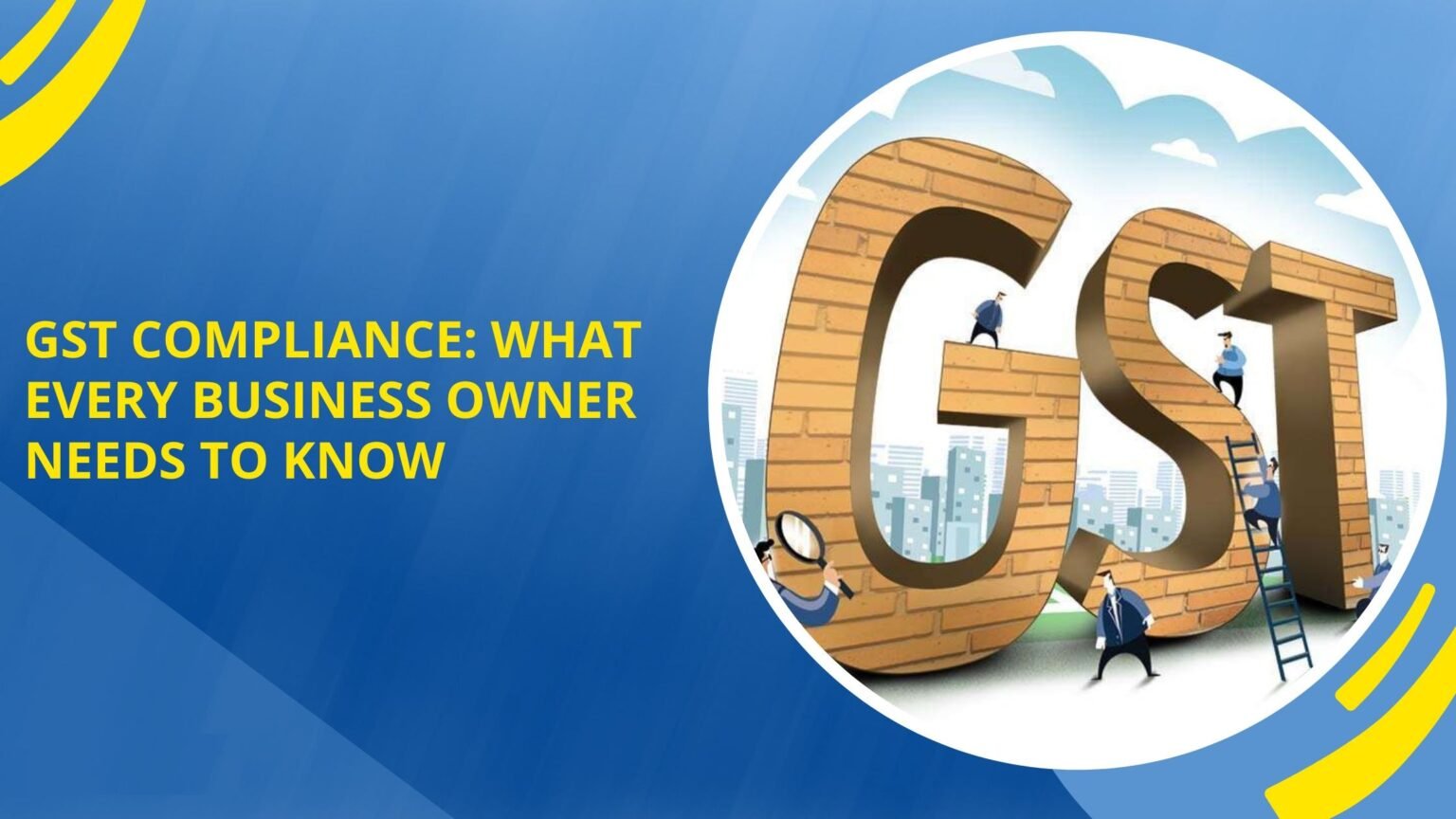Goods and Services Tax (GST) has been a game-changer for Indian businesses since its introduction on July 1, 2017. It replaced multiple indirect taxes with a single unified tax system, simplifying compliance and fostering transparency. However, for many small business owners, GST can still feel complex and overwhelming.
This comprehensive guide breaks down everything you need to know about GST in India — from registration to filing, compliance, and benefits. Whether you’re just starting your business or want to sharpen your GST knowledge, this post is your go-to resource.
What is GST?
GST is a comprehensive indirect tax levied on the manufacture, sale, and consumption of goods and services across India. It is a destination-based tax, meaning it is collected where the goods or services are consumed rather than where they are produced.
GST subsumes various central and state taxes like VAT, service tax, excise duty, and more, creating a unified tax structure with three main components:
- CGST (Central GST): Collected by the central government on intra-state sales.
- SGST (State GST): Collected by the state government on intra-state sales.
- IGST (Integrated GST): Collected on inter-state sales and imports.
Who Should Register for GST?
As a small business owner, you need to register for GST if your aggregate turnover exceeds the prescribed threshold, which depends on your business type and location:
| Business Type | Threshold Limit for GST Registration |
| Goods Supplier (Most States) | ₹40 lakh (₹20 lakh in NE and hill states) |
| Service Provider | ₹20 lakh (₹10 lakh in NE and hill states) |
Note: Voluntary registration is also possible and beneficial for some businesses.
Types of GST Registration for Small Businesses
- Regular GST Registration: For businesses crossing the turnover threshold or those who want to collect and claim input tax credit (ITC).
- Composition Scheme: Simplified scheme for small taxpayers with turnover up to ₹1.5 crore, allowing payment of tax at a fixed rate without the need to maintain detailed records or file monthly returns.
GST Rates Applicable to Small Businesses
GST rates vary depending on the goods or services you supply. Common slabs include:
- 0% (Nil-rated): Essential items like fresh food grains, healthcare.
- 5%: Food items, small restaurants.
- 12% & 18%: Most goods and services like electronics, telecom, etc.
- 28%: Luxury items, tobacco, certain automobiles.
Tip: It’s crucial to classify your goods and services correctly under GST to avoid errors.
Input Tax Credit (ITC) — A Key Benefit for Small Businesses
ITC allows you to claim credit for GST paid on business purchases, reducing your overall tax liability. For example, if you paid GST on raw materials or services used for your business, you can offset that amount against GST collected from your customers.
To claim ITC, ensure:
- You have a valid tax invoice.
- The supplier has filed GST returns.
- You have received the goods or services.
GST Compliance and Filing for Small Businesses
1. Return Filing
- GSTR-1: Details of outward supplies (sales). Filed monthly or quarterly.
- GSTR-3B: Summary return of inward and outward supplies along with payment of GST. Filed monthly.
- GSTR-4: Quarterly return for Composition Scheme taxpayers.
- Annual Return: GSTR-9 for regular taxpayers and GSTR-9A for Composition taxpayers.
2. Payment of GST
GST is paid online using challans generated on the GST portal. Payments must be made by the due date to avoid penalties.
Common GST Challenges for Small Business Owners
- Understanding GST slabs and classifications.
- Managing timely filing of returns.
- Maintaining detailed invoices and documents.
- Handling inter-state transactions and IGST.
- Claiming Input Tax Credit correctly.
Tips to Simplify GST Compliance
- Use accounting software like Tally, Zoho Books, or QuickBooks integrated with GST.
- Keep all invoices and bills organized digitally.
- Set reminders for due dates.
- Consult a GST practitioner or tax advisor for complex cases.
- Regularly reconcile your purchase and sales data with supplier filings.
Benefits of GST for Small Businesses
- Simplified Tax Structure: One tax replaces multiple levies.
- Reduced Cascading Effect: Elimination of tax on tax.
- Increased Market Access: Seamless inter-state trade.
- Improved Compliance and Transparency: Digital filing and payments.
- Boost to Make in India: Encourages domestic production.
FAQs on GST for Small Business Owners
Q1. Can a small business opt for Composition Scheme?
Yes, if your turnover is up to ₹1.5 crore, you can register under the Composition Scheme and pay GST at a lower fixed rate.
Q2. What if I miss the GST filing deadline?
You may have to pay a late fee and interest on outstanding tax dues. Continuous delays may attract penalties or cancellation of GST registration.
Q3. How often do I need to file GST returns?
Monthly for regular taxpayers, quarterly for Composition Scheme registrants, plus annual returns.
Conclusion
GST has transformed the Indian taxation landscape, offering many benefits for small business owners by simplifying the tax process and reducing compliance burdens. However, understanding the nuances of GST registration, filing, and compliance is essential to avoid penalties and optimize tax benefits.
If you’re a small business owner, take the time to familiarize yourself with GST regulations or consult a professional to ensure your business stays compliant and thrives in the evolving market.


